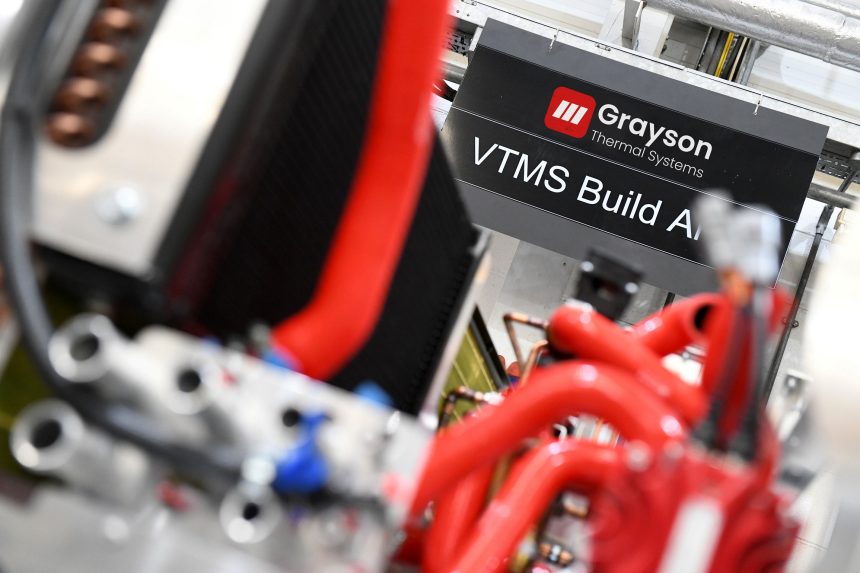Grayson Thermal Systems is set for significant growth after securing an eight-figure funding package from HSBC UK. Key to the work that money will support is the development of three new production lines at Grayson’s Tyseley facility in the West Midlands.
Those will include two involving heat pumps, and another working with battery thermal management systems. Both areas fit within Grayson’s existing business of supplying cooling, heating and air-conditioning products to the transport sector, including coach and bus. The funding package will also help to modernise Grayson’s fabrication facility to boost efficiency and increase output.
The supplier will further expand its headcount at Tyseley, with 74 new staff members having been appointed by the end of 2023. Current employees will undergo training to upskill them so that they can properly use the new equipment.
Growing demand is the reason for expansion, with 76% of Grayson’s European revenue linked to electric vehicles. The business has seen a 75% rise in sales in Europe and an 80% uplift in North America for its product range in that sphere.
To that end, HSBC US is providing a seven-figure funding package to support development of the company’s facility in Indiana through Grayson Thermal Systems Corp.
Speaking about the expansion plans, Grayson Thermal Systems Managing Director Stuart Hateley says: “Demand for our EV products is continuing to increase significantly, so investing in building our production capacity has been vital.
“We supply customers across Europe as well as the United States, so it was important for us to partner with a global bank with both local and international expertise that could offer us the working capital we need to grow and meet demand.”
Adds HSBC UK Head of Corporate West Midlands Andy Oates: “Grayson Thermal Systems is an important employer in the West Midlands, and we are pleased to see its headcount grow even further as a result of the new production lines.
“We look forward to supporting the business, both domestically and internationally, and seeing its US counterpart demonstrate similar success.”



























